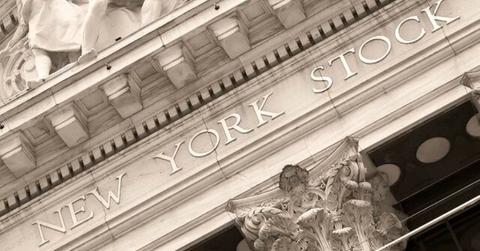Protecting Your Stocks During The Age Of COVID-19

The effects of the COVID-19 pandemic also known as the coronavirus is starting to be felt in various industries. Some employees are already out of work and millions more could end up losing their jobs. One industry, in particular, that has felt the effects early is the stock market. The last two weeks have been a rollercoaster ride for the market as the COVID-19 virus began to spread and companies started closing operations.
On March 11th the Dow confirmed a bear market for the first time since the 2008 financial crisis. The Dow Jones Industrial Average fell 5.85%, the S&P 500 lost 4.89% points, and the Nasdaq composite dropped 4.7% points. As of Friday, March 20th the Dow Jones ended below 20,000 points.

So what does all of this mean? What are the effects of this on our pockets?
Courtney Richardson, attorney, former stockbroker, and owner of The Ivy Investor, a resource for women seeking to navigate the investment world explains the volatile markets in three parts.
1. What Goes Up Must Come Down
First, market trading was at an all-time high. Last month, Dow Jones was trading at 29,551 the highest closing to date. “The higher it gets the more unstable it becomes,” says Richardson.
2. Wuhan is on lockdown
The spread of Coronavirus put a halt to the city of Wuhan, the capital of the Central China Hubei province. Why is this significant? “China is the second-largest economy in the world and the world’s largest manufacturer and exporter of goods. Richardson explained. She continued, “Many of the items we use come from China and with the shutdown of the city it caused a production decrease in the supply chain.”
3. More Investors Selling off
Third, you have investors selling off a lot which causes a decrease in the stock. All of these things combined with a pandemic and consumers not spending as much due to uncertainty caused an unstable market. Richardson says, “A bear market is usually started by some sort of fear which causes investors to sell quickly causing a fall in the market, it is not a recession but is usually the beginning of one.”

As fears of a looming recession can be heard from financial experts and businesses alike all is not yet lost. For those who are already players in the market, Richardson suggests placing a stop-loss order to protect your gains.
A stop-loss order is placed with a broker to buy or sell once the stock reaches a certain price. It is designed to limit an investor’s loss on a security position. “Don’t sell your investments if you can just move new money into a stable fund,” she advised. What are more stable funds? Look at companies that do well in recessions. These include utilities, telecoms, and energy to name a few.
Richardson offers this advice, “Look at a companies debt, if they have too much it will cause problems if we do go into a recession. Poor money management in companies is the same as it is in a person.”
For newbies who are interested in the markets, Richardson recommends starting with building an emergency fund. Sypreme Essence, a credit/financial guru and owner of Credit Warriors echoes this sentiment as well. “You cannot wait for an emergency to prepare yourself.”
Essence recommends opening a high yield savings account or a money market account. She also recommends that you split your money between banks and don’t put all your eggs in one basket.
If you are nervous about jumping into the market Richardson offers this advice, “There is always an opportunity to get into the market just make sure you educate yourself.” Watch it and learn what is going on and you will become an intelligent investor.





